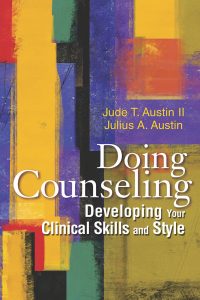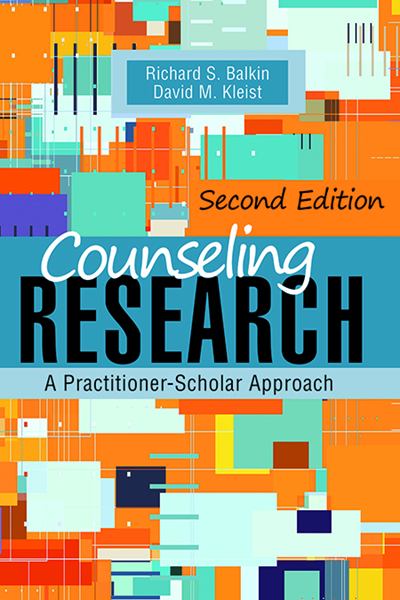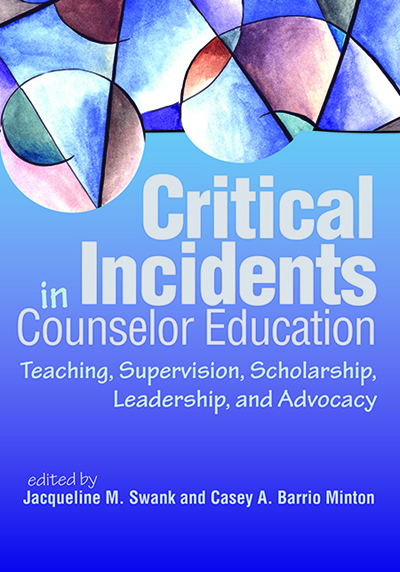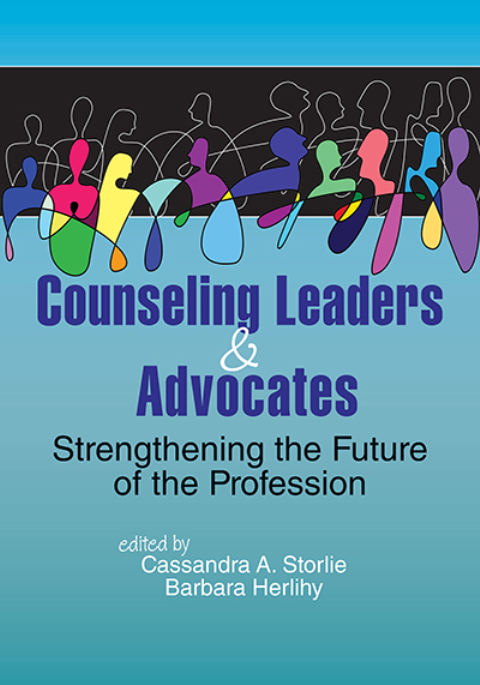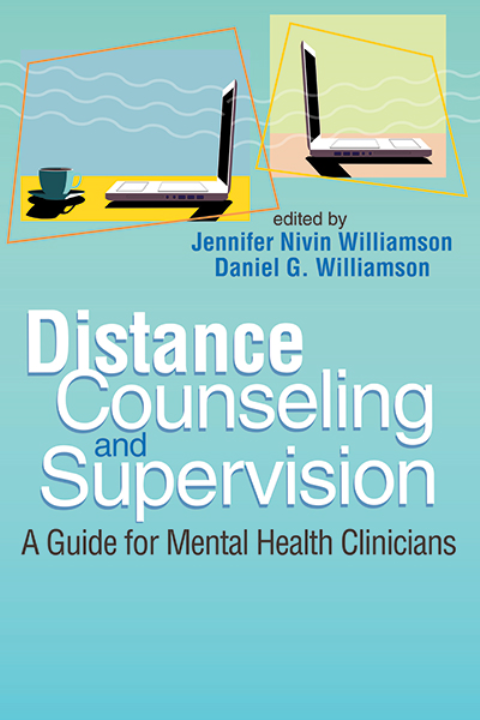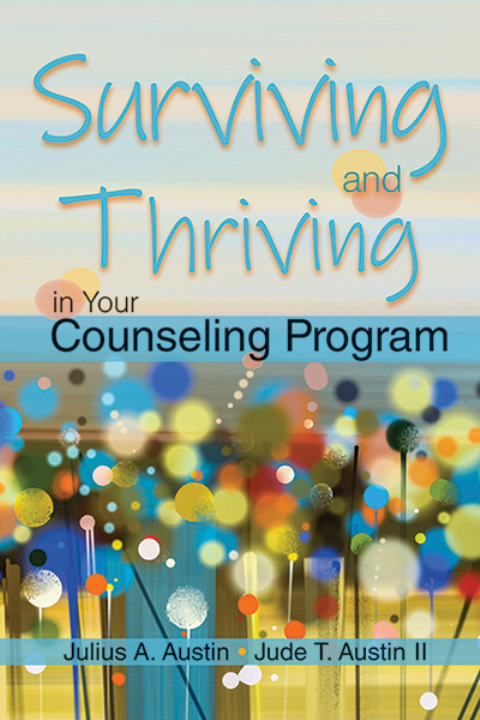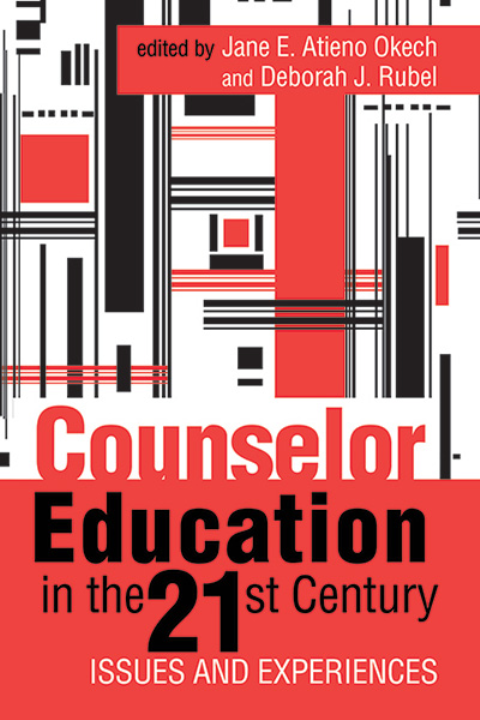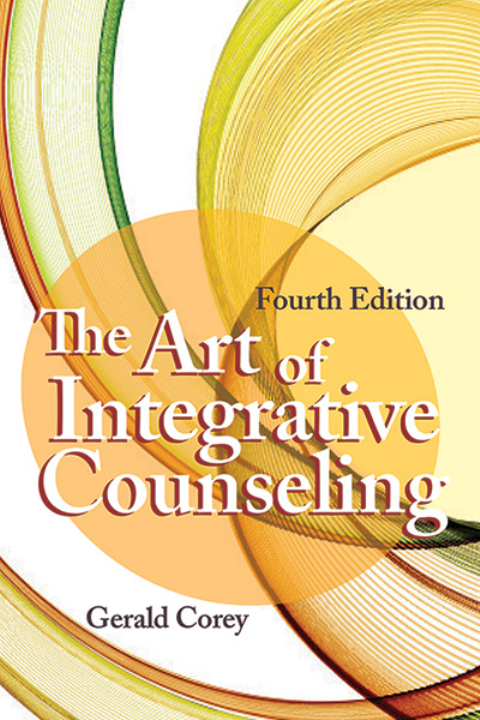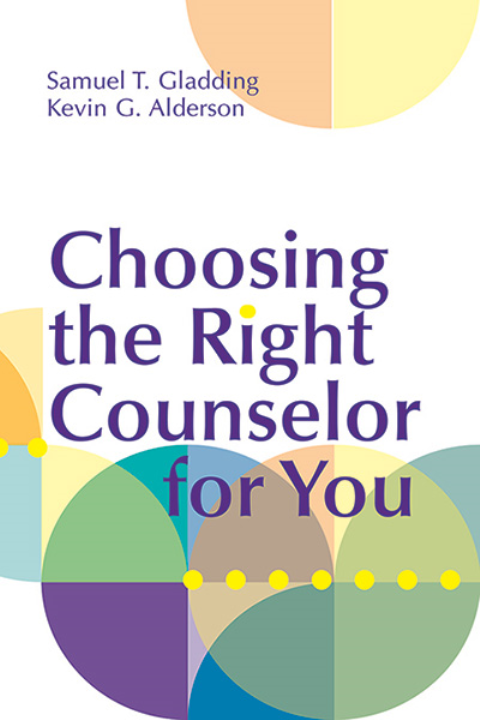
Professional development, a lifelong process
Related Articles from Counseling Today
Professional advocacy: A call to the profession
This past year, American Counseling Association President Heather Trepal commissioned a task force to focus on the topic of professional advocacy. This article is part of our response to that charge.
In this article, we discuss professional advocacy and its importance; ways that counselors can advocate; how ACA has advocated for the profession; what all counseling associations can do to support an advocacy agenda; what individual counselors can do to be advocates; and the important role that a clear, unified counselor identity plays in furthering a professional advocacy agenda.
Professional advocacy and its importance
Professional counselor advocacy involves taking action to promote the profession, with an emphasis on removing or minimizing barriers to counselors’ ability to provide services. Although advocacy as a whole has become increasingly relevant over the past two decades, efforts related to professional advocacy have received less attention and therefore made little headway in comparison with client and social issues advocacy.
Counseling is a mission-based profession, meaning that we each had a reason for choosing this career. There was someone we wanted to serve, or some setting or client population for which we wanted to make a difference. All counselors have felt called to be agents of change. In fact, our ethics codes and professional competencies mandate that we advocate for and alongside our clients.
That being said, when we consider advocacy, we do not often think about our mission for our profession. Concerns such as parity (being reimbursed at the same rate as other mental health professionals with comparable training), public recognition, accurate representation of our profession, and employment opportunities are important if we are to practice our craft. We must know and promote our worth and recognize that if we are not strong and healthy as a profession, we cannot help others. Therefore, professional advocacy must be a top priority for all counselors.
Examples of professional advocacy
Advocacy activities serve to expand counselors’ presence at the community, state and national levels, and counselors should not underestimate the importance of supporting the growth of the profession through actions taken in their local communities. In addition, professional advocacy activities include those aimed at positively promoting the counseling profession.
Larger-scale advocacy actions could be conceptualized as capital “A” advocacy actions, whereas smaller-scale advocacy efforts could be called lowercase “a” advocacy actions. For example, “A” advocacy actions might encompass large, organized efforts such as those aimed at changing federal or state legislation or local policies and practices. They can include teaching and supervising students through setting standards, developing competencies and applying ethics. They are our shared responsibility to unite our voices.
Examples of “a” advocacy actions include those continuous, in-the-moment efforts that positively promote the counseling profession. These efforts may generate positive cultural change regarding counseling, help-seeking or what it means to be a counselor. These efforts can also include mentoring our next generation of professionals.
An important point is that neither “A” nor “a” advocacy actions are more or less important. Both types are needed, and we all have our role to play in professional advocacy efforts.
Today, counselors face myriad barriers to providing care to students, clients and communities. These barriers include the Medicare coverage gap, lack of licensure portability, inadequate funding for mental health treatment across settings, inadequate funding for school counselors, and a lack of public knowledge about counseling as a profession. In addition, the rising cost of graduate education often leaves professional counselors across all settings struggling to pay back student loans years after degree completion.
Each of the aforementioned barriers makes it difficult for counselors to provide care to the people and communities that need them most. For example, if an older adult whose primary insurance is Medicare cannot access the services of a licensed professional counselor, then their options to receive services become limited. When a counselor crosses state lines and cannot work in their new community, it is unjust to both the counselor and the community, especially because there is a nationwide shortage of counselors. Inadequate funding of counseling services means that counselors are not compensated appropriately and that clients cannot access services critical to their well-being. Inadequate student-to-school counselor ratios harm both students and school counselors. In each example, counselors, clients and communities are negatively affected by barriers at the sociopolitical level that prevent counselors from doing their jobs.
What ACA does to advocate for the profession
As an organization dedicated to the counseling profession, ACA has advocacy at the core of its mission. ACA staff, leadership, task forces and committee members work to raise awareness about the profession and support legislation that helps counselors serve myriad communities. By advocating for recognition, compensation and resources, ACA helps counselors continue to perform integral work.
Guided by its 2018-2021 strategic plan and framework, ACA’s advocacy efforts on behalf of the profession involve both legislative and nonlegislative means. For example, ACA continues to advocate for seamless portability across states for independently licensed counselors. To support counselors, ACA recently funded an initiative to pursue an interstate compact for portability. The advisory board for the compact brings together lawmakers, licensing board members, counseling professionals and others to work on advocating for licensure portability.
ACA also employs a team of government affairs and public policy staff members dedicated to advocating with federal, state and local governments on the legislative front to support the profession. These staff members’ efforts, along with those of other counseling organizations and individuals, helped counselors become eligible to provide services through the Department of Veterans Affairs (VA). ACA continues to advocate for more employment opportunities for licensed professional mental health counselors within the VA. ACA also uses an electronic legislative advocacy alert system that all counselors should sign up to receive; by clicking on a link, you can quickly advocate for the profession.
As part of its focus on advocacy, ACA has formed multiple member-led groups to identify the needs of counselors, raise awareness of what counselors do and how they impact communities, expand employment opportunities for new professionals, educate on professional development, and provide information to help counselors advocate for the profession and meet the needs of clients. By harnessing the passion, vision and energy of its members, ACA is invested in training counselors to advocate for the profession, educate the public and promote the needs of counselors and those they serve.
ACA is also working hard to raise awareness of the importance of good mental health. One significant example is ACA’s role in developing Counseling Awareness Month activities. This past April, the Counseling Awareness Month theme encouraged counselors to #BurnBrightNotOut. ACA introduced a Counseling Awareness Month toolkit containing social media resources, fact sheets, contests and sample proclamations that members could use to encourage leaders and governing bodies to recognize counselors and the profession. In addition, ACA promoted Teal Day on April 10. This was a day for counselors to wear the symbolic color of teal to promote the profession. According to the toolkit, “As an outward symbol of advocacy and hope for counselors and the profession, ACA created Teal Day: an enthusiastic social initiative designed to build strong support, recognition and appreciation for professional counselors.”
Suggestions for the profession
Through leadership and advocacy efforts, we have made great strides as a profession in establishing ourselves as vital to the mental health landscape. United, our advocacy efforts have made an impact on critical issues such as insurance reimbursement parity, licensure in all states, and increased consumer awareness of counseling and its value. All of these efforts are vital to our profession and ultimately make a positive impact on the wellness of our clients and communities.
Nevertheless, our profession continues to face threats, so we must never take these successes for granted. Instead, we must double down on our efforts to fortify the health and wellness of the profession moving forward. Ample opportunities exist for growth around professional advocacy initiatives.
One way we can further develop our advocacy efforts is by institutionalizing advocacy supports and structures within counseling organizations. For example, this may include establishing and maintaining an ACA committee, with multiorganizational representation, that focuses solely on the advocacy needs of the profession. ACA, Chi Sigma Iota (CSI), the National Board for Certified Counselors (NBCC), state branches, ACA divisions and other counseling organizations could also build within their structures an advocacy mentoring program. That way, those who have successfully engaged in advocacy efforts — whether legislative, organizational or community advocacy — could share their experiences and pay it forward so that a greater number of counselors would be well prepared to engage in advocacy efforts.
Counseling associations might also create a listing of local “advocacy leaders” as a resource for those facing advocacy challenges and needs in their workplaces or communities. Having the support of a colleague is sometimes all that is needed to encourage a counselor to engage in professional advocacy and help them navigate their way through such efforts. Within and across counseling organizations, spaces can be created for counselors to discuss, connect, consult and get support around advocacy needs.
Collaboration between or within counseling organizations may also provide opportunities for expanding existing advocacy efforts. For example, CSI currently publishes “Heroes and Heroines” interviews on its website, highlighting the lifetime work of highly established counselors who possess a depth of advocacy experience. Three times per year in its online newsletter, the Exemplar, CSI also publishes “Advocacy Agent” interviews with members currently engaged in advocacy efforts. Working together, ACA and CSI could bring these advocacy efforts to an even greater number of individuals through a collaborative advocacy-centric newsletter. Jointly, the organizations could also expand the audience of such efforts through social media, where they could also collaboratively broadcast important advocacy issues, needs and required action.
Furthermore, ACA and CSI members could collaboratively review and offer feedback on revised CACREP standards during the open-comment period to ensure that the standards reflect current and evolving real-world professional leadership and advocacy needs.
Finally, ACA can enhance cross collaboration among ACA divisions and branches by setting up regularly scheduled briefings in which division leaders share advocacy challenges and successes and gather support. One current example is an effort by ACA’s government affairs and public policy staff to host a monthly Advocacy Power Hour with state branch leaders.
Counselors should also engage in interprofessional advocacy. By identifying community partners and potential collaborators, we become stronger and can move more efficiently toward reaching our professional goals.
We are aware that many counselors struggle with understanding how to effectively advocate; they want to help but do not know where to begin. Thus, another way the profession can promote advocacy is through education, both on advocacy directly and on the leadership skills needed to engage in advocacy.
CACREP requires counseling programs to address leadership development. However, training on leadership is not often visible in master’s-level curricula, nor is it prominent in doctoral curricula. Intentional efforts to increase such education is vital.
This leadership and advocacy education can be accomplished in many ways. One means of ensuring that counselors are well armed to engage in advocacy is by making existing leadership and advocacy resources readily accessible. The ACA Conference offers a prime opportunity to promote advocacy education through advocacy-focused educational tracks; an advocacy booth in which resources, networking and support are offered; a keynote speaker focused on advocacy (perhaps with a legislative collaborator); special sessions in which legislators can share and demystify their experiences of working with counselors; and specialized preconference sessions that offer advocacy training.
ACA can further bolster advocacy education through the creation and promotion of short how-to advocacy videos. These videos could focus on inspirational stories of advocacy efforts, with details of how the advocacy got started and what was accomplished. Other videos might fortify our collective professional identity by effectively communicating who we are as a profession and highlighting how we are distinct from other mental health fields. This would help every counselor maintain their pride in the profession.
Additionally, professional associations and organizations could provide webinars on leadership and advocacy to their respective members. They could also create toolkits for counselor educators so that leadership and advocacy training are better represented in master’s and doctoral education.
Advocacy education could also be promoted via Counseling Today, the Journal of Counseling & Development, ACA division journals and other professional literature. These publications could offer dedicated space for featuring research and best practices in leadership and advocacy. Through collaborative, comprehensive, consistent and intentional efforts, counselors can continue to be empowered and united in our efforts to promote the profession, which in turn promotes the wellness and dignity of those in the communities in which we serve.
Suggestions for counselors
Professional counseling organization advocacy is just one piece of the puzzle. The counseling profession never would have evolved if not for the work of individual counselors, and nowhere is that as obvious as with regard to legislative advocacy. Generally speaking, legislators care most about what their constituents think. In fact, individual counselors working in unison with their legislators have facilitated the bulk of the legislative changes that impact our practice.
Each of us has a story to tell about how the law either helps or hinders our work as counselors. Rather than accepting that we have to do our best in a broken system, we must identify barriers that others may perceive to be immovable givens. Sometimes this means taking up the fight — a process that can feel foreign and intimidating, but it is important if we are to thrive.
A simple place for counselors to start is to analyze our social networks and the relationship resources in our own backyards. Who are the power brokers you may already know who can serve as cheerleaders for your cause? Take time to reach out strategically and build relationships. Find reasons to contact a member of your board of education, your religious leaders, a state legislator or your public health administrator. Support efforts in your local community that are consistent with your values, regardless of whether those efforts are directly related to your role as a counselor. For example, counselors can send emails or make calls to support a bill to increase funding for preventing human trafficking or for increasing resources for responding to community crises.
Become visible, and make your presence known. These relationships can be crucial, sometimes in unexpected ways, when you need to advocate for the counseling profession or for the students or clients you serve. When it matters most and when efficiency is essential, those lines of communication will already be open. A counselor constituent might reach out to that one lawmaker who will take up the cause and become a policy champion, thereby influencing others to join the effort. That one lawmaker may determine whether a great idea eventually becomes a law. In sum, individual relationships and networking count.
Unfortunately, upstream factors such as funding, bureaucracy and scarce resources may cause social services and other constituencies to compete against each other. It is often said that those who are not at the table will not be able to eat. Speaking out about what you or your clients need, either as an individual or, ideally, with your ACA branch or division, and establishing a place at the decision-making table can lead to changes that positively affect the lives of individual clients.
Indeed, such advocacy can also make your work much easier, more efficient and more effective. Counselors should consider how various state or federal government agencies either support or challenge the work of professional counselors. Are there job descriptions and real opportunities for counselors to be employed in the broad variety of settings where other mental health disciplines are already accepted or embraced? Are there loan forgiveness programs that need to include counselors? The need for counselors to be integrated into the VA system and Medicare reimbursement are examples of significant challenges. A natural response to these injustices and barriers to people getting access to care is to become angry or frustrated. Individual counselors who connect with this frustration can use it as momentum to courageously enter unfamiliar territory, including the legislative world.
State counselor practice acts and the licensure boards that enact these laws play an extremely important role in the landscape of our profession. It is helpful for counselors to develop relationships with their licensure board members. Sign up for their email alerts, and take any opportunity you can to forge relationships with them. Attend their meetings if they are public. Seek appointment to serve on the board. Let them know what you need and where you see counselors and consumers struggling. Then encourage others to do the same. Licensure board members are public servants tasked with protecting the public, and many of the issues with which our profession struggles have a significant impact on consumers. Similarly, school counselors can forge connections with their state board of education members.
Professional counselors can help policymakers, members of their local communities and members of their social networks better understand the importance of counseling and the benefit we bring to our clients and communities. Making sure that the power brokers in your respective areas and social circles are aware of counselors’ value is an important task. We know that counseling services help our clients and students to feel supported, reduce their stress and anxiety, and increase their daily functioning. Transferring this knowledge to others is important.
Helping others understand the impact of our work and the ripple effect that counselors have on their communities ultimately influences the profession in various ways. Increasing awareness of counseling’s value can help reduce stigma associated with mental illness and mental health issues. When others understand that 1 in 4 people are living with a mental illness and that our work as professional counselors aids in creating positive change, we can more effectively decrease stigma in our communities. When mental illness is destigmatized, people who need counseling and support are more likely to seek that help in pursuit of living more fulfilling lives.
The importance of a strong counselor identity
A foundational element of effective professional advocacy is a clear professional identity. Unless we know who we are, we cannot communicate that message to stakeholders. ACA, CSI, NBCC, CACREP and other professional counseling organizations have helped to steer counselors toward a shared professional identity. Development of the ACA Code of Ethics, support of CACREP educational and training standards, and the adoption of competencies set forth by ACA divisions are among the ways our profession has worked to define and support counselor identity.
The public’s lack of knowledge about counseling as a profession is an additional barrier to services and is intrinsically tied to legislative barriers. Legislators may not have enough knowledge about professional counseling to make laws that create equitable access across professions or for all clients. Similarly, when managed care companies are not aware of the valuable care that professional counselors can provide, we may be inadequately reimbursed. Even potential and current clients may be unaware of the unique professional identities of counselors and thus misunderstand or undervalue our services. It is critical that we educate the public, including lawmakers, on who we are and what we do.
We work in an increasingly interdisciplinary world. Thus, counselors must work to expand public knowledge and awareness about the services, skills and training provided by professional counselors. As suggested by Stephanie Burns in a 2017 article in the Journal of Counselor Leadership and Advocacy, every counselor should have a one-minute professional identity “elevator speech” that they can share with others. Such a speech can succinctly communicate who we are and what we do to support public understanding of our work.
Some practice settings require counselors to work alongside other mental health professionals under titles such as caseworker or therapist. Similarly, clients may be called consumers or patients depending on the setting. It is important for counselors to use the word “counseling.” When able, counselors should refer to themselves as counselors, not as therapists or guidance counselors, and be clear about who they are as unique helping professionals.
We cannot expect to thrive in an interdisciplinary world if the public does not understand who we are. Educating the public about important issues related to mental health and well-being continues to be an essential role of counselors.
In summary, the counseling profession has come a long way, but we still have work to do. Counselors continue to experience many barriers that get in the way of our ability to practice. All counselors, and all of our professional associations and organizations, have an obligation to commit to and work toward advocacy efforts that will grow our profession.
****ACA Advocacy Task Force members who contributed to the development of this article were (in alphabetical order) Angie Cartwright, Madelyn Duffey, Louisa Foss, Cheryl Fulton, Denise Hooks, Victoria Kress, Christine McAllister and Jordan Westcott. Direct questions or comments regarding this article to task force chair Victoria Kress at victoriaEkress@gmail.com.
**** Opinions expressed and statements made in articles appearing on CT Online should not be assumed to represent the opinions of the editors or policies of the American Counseling Association.- Professional Counseling
- Professional Development
- Counselors
